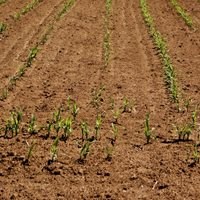(BRUSSELS) – The Commission in a Communication Thursday has clarified the use of ‘force majeure’ and exceptional circumstances for the EU agricultural sector in case of unforeseeable and extreme weather events.
“Farming is one of the most exposed professions to climate change and its consequences,” said Agriculture Commissioner Janusz Wojciechowski: “With unforeseen extreme climatic events, farmers risk losing everything they have worked for. Our clarification today brings certainty that they could still receive their CAP payments, even if they are unable to meet all their usual obligations.”
The concept of ‘force majeure’ allows farmers when unable to fulfil all their CAP requirements due to exceptional and unforeseeable events outside their control (such as severe droughts or floods) not to lose CAP support. The application of the concept is decided by Member States based on relevant evidence and in light of Union agricultural law.
Because it constitutes an exception to the strict respect of obligations linked to CAP payments (such as conditionalities or measures in eco-schemes), this decision is normally applied in a restrictive manner, generally on a case-by-case or farm-by-farm basis.
The new Communication clarifies that force majeure can apply to all farmers working in a delimited area that is affected by severe and unforeseeable natural disasters or meteorological events. This means that farmers located in the impacted area will not need to fill in individual requests or provide evidence for the fulfilment of the conditions of force majeure. This enlarged scope of application will reduce the administrative burden for farmers and national authorities, thus facilitating a swift response by Member States.
Conditions are set out in the Communication to allow the presumption that all farmers located in an area are covered by force majeure. Member States will have to confirm the occurrence of a severe natural disaster or a severe meteorological event and delimit the geographical area that has been gravely affected by the event, and whose consequences could not be prevented with all due care. For this delimitation, Member States can rely, for instance, on satellite data of the area concerned, without the need for specific satellite data at the level of the individual holdings. For certain types of events, national administrations will also consider additional factors, such as the slope gradient, soil type, or type of crops grown, to define the population affected without the need for individual verification. This could be the case, for instance, for frost which may not affect all crops in the same manner, or continuous rainfall, which may have different effects on areas with a slope, or soils with different water retention capacities.
With all the conditions fulfilled, today’s clarification exempts the authorities from the need for a case-by-case assessment.
The Commission says it remains in contact with Member States to provide legal guidance whenever necessary.
Communication on force majeure and exceptional circumstances



